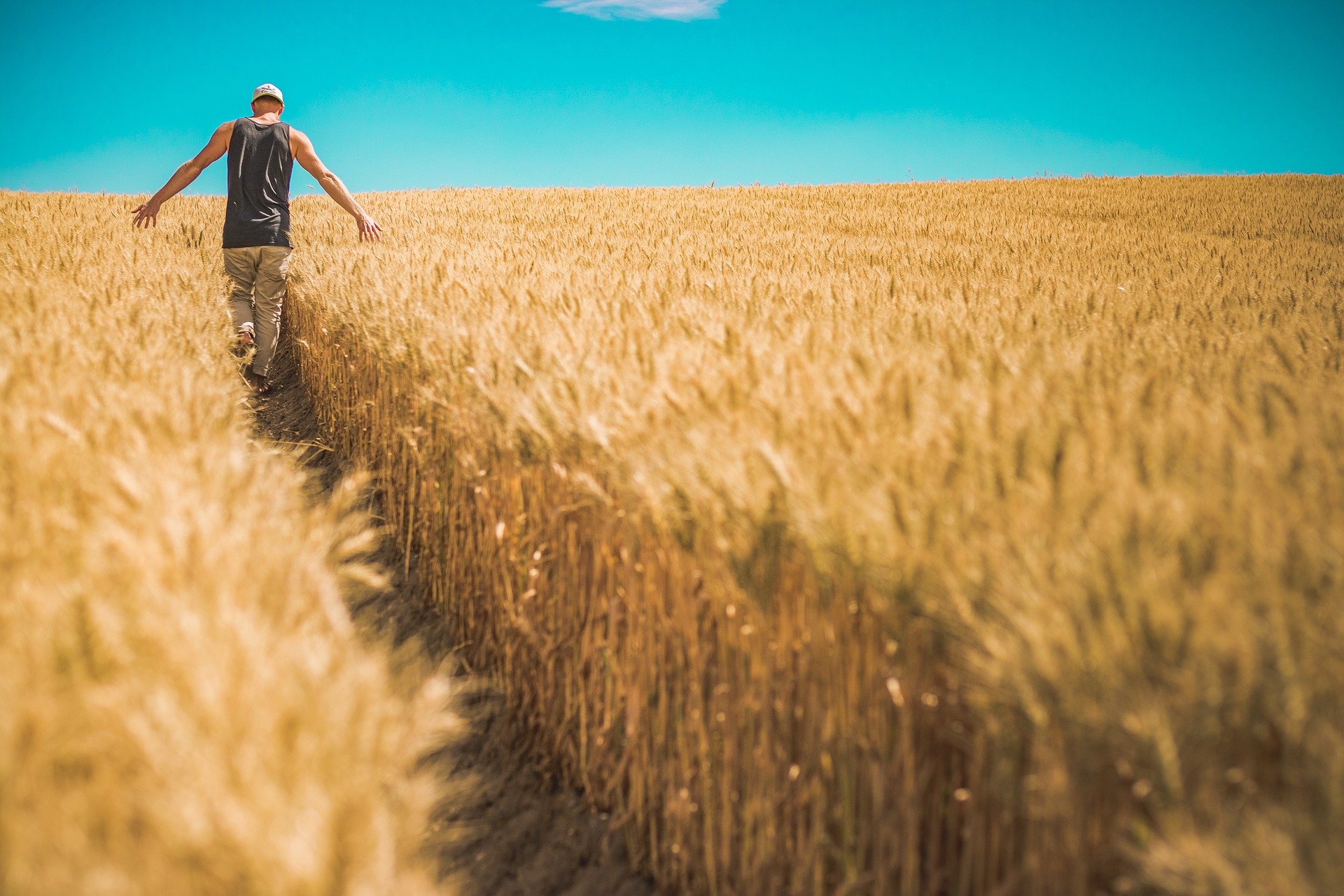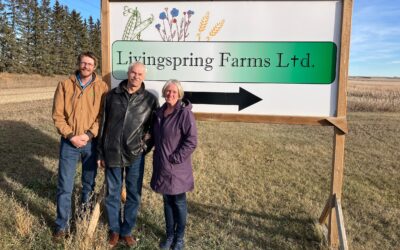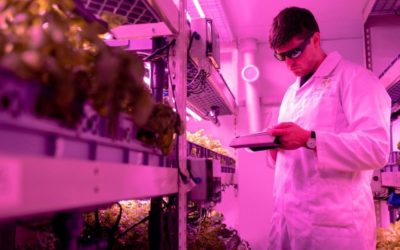How can we come out the other side when we are in such uncertain times? The Do More Ag Foundation is providing resources and training in the ag community.
There is no doubt managing your stress level can be a daunting challenge. Add in COVID-19 and its effects — whether that’s homeschooling kids or getting the right personal protective equipment in place — there is no doubt everyone is feeling the pinch. Those in the ag sector are not excluded.
“The unique stresses of agriculture are not lost on industry normally, so add one thing on top of it and absolutely, the levels on uncertainty now on top of other levels of uncertainty can cause increased stress and things like that,” says Adelle Stewart, executive director of the Do More Ag Foundation.
In spring, some farmers had extra hands on deck for planting — with everyone working and learning virtually, not only were families spending more time together, but there were extra hands on the farm. However, for those who rely on temporary foreign workers, COVID-19 brought with it another set of headaches as they stressed about whether their workers would be able to come.
“There were very different experiences from it,” Stewart says. “Some felt it was a blessing, some felt this was a stress that topped anything they have felt in terms of stress before.”
In Alberta, one can only speculate — as there is no hard data as of yet — that both COVID-19 and the spring weather had a significant impact on the farming community.
“We have no hard data,” Stewart says. “We really rely on boots on the ground but we’re speculating that both the weather and COVID has had a significant impact. We certainly had some early hard frosts which didn’t help things. The challenge now is getting product to market, finding out where those markets are and how to we maximize all of this.”
The Submission to the Standing Committee on Agriculture and Agri-Food: Strengthening Canada’s Agricultural Sector – A Canadian Network for Farmer Mental Health (Dr. Andria Jones-Bitton 2018) was a national survey taken across Canada. Identified were multiple mental health complications facing farmers — some 45 per cent of farmer respondents had high stress, and 58 per cent and 35 per cent met the classifications for anxiety and depression.
According to the study: “These results are concerning and represent a major risk to the Canadian agricultural sector as poor mental health and well-being has negative implications for the individual farmer, as well as their families, livestock, production, and financial bottom lines.”
Talk, Listen, Ask
Founded in 2018, Do More Ag is a not-for-profit organization whose main focus is the mental health of those working in the Canadian agri-sector. Since launching, one of the main focuses of the group is not only to talk about mental health, but to challenge people to have the words mental health roll as easily off their tongue as other illnesses do.
“At the very core – when people ask: ‘What can we do?’ we go back to our slogan that we live by which is talk more, ask more, listen more,” Stewart says. “The conversations are all going to be different.”
She offers the following tips when following the manta:
Talk More. “We can challenge someone to say, ‘Use the term mental health in your next conversation.’ I mean, you can always say, ‘I read this story in the Alberta Seed Guide about mental health.’ It can be that simple— just use the term so it becomes more normal in your vocabulary.”
Listen More. “Listen with the intent to understand. As producers, we have to be jacks of all trades all the time and we are quick to offer solutions. But when someone is talking about their mental health, it could be almost degrading to just say ‘Well at least it is not this,’ or ‘Chin up as it really isn’t that bad.’ What we really want to do is just listen and be there.”
Ask More. “That falls into the middle of those by really having a conversation, just instead of asking: ‘How are ya?’ Being authentic and having fact based conversations: ‘Man, harvest has been really hard or harvest has been really great. How has your experience been with it and how is your family handling the stressors?’”
Proving Resources and Stepping Up
Stewart says Do More Ag has a Community Resource Fund which helps to bring mental health resources to agriculture communities across Canada. Partnered with Farm Credit Canada, the fund was created to bring mental health education and literacy to communities at no cost.
With COVID-19 putting the kibosh on in person events, Do More Ag is doing what everyone else is — going virtual.
“We pivoted this year because we do (events) during the major off season for most producers, the January to April timeframe,” she explains. “So we had run half of them and we had to pivot and moved our workshop to a virtual model early on. We have delivered it to over 500 producers already since it has been running, and there is more to come in early 2021.”
Stewart says what Do More Ag needs is community leaders and people to apply. Those interested in bringing Do More Ag events to their community in the future — they are now booking for 2021— can go on their website and apply to have a Community Mental Health Education course in your rural community.
“It does not run without our community leaders, which is what we call them … for bringing this training to their rural locations.”
Remove the Stigma
Stewart says people are starting to open up and share their stories, which goes a long way in the conversation about mental health. She said in some areas, there are strong advocates; in others, voices are still, a little quieter. But that is OK.
“That is our primary focus, making sure that (farmers’) needs in this area are never lost in any conversation that is happening at any level,” she says. “As we have continued to make good at that promise, other people can now feel comfortable in sharing their own stories, and some of them are starting to do that on our platforms. We are starting to have guest blogs come out and share their stories; our campaigns are the real words of primary producers across Canada, so we are absolutely seeing a positive shift and the conversation is becoming more normal.
“That being said, there is a long way to go still.”
WHERE ON THE WEB
For those interested in signing up or knowing information about the next one, can check out the Do More Ag website and sign up for their newsletter.
BY THE NUMBERS
- 35% met the criteria for depression classification
- 45% were classified as having high levels of perceived stress
- 58% met the criteria for anxiety classification
- 40% of producers across Canada reported that they would feel uneasy about seeking professional help due to what people may think.
(Source: Results from the National Survey of Farmer Mental Health, involving 1100 producers from across Canada. © Dr. Andria Jones-Bitton 2018)
RESOURCES
- Mental Health Hotline: 1-877-303-2642 (24/7)
- Support for individuals dealing with an individual, family and/or community crisis.
- 211 Alberta – PHONE: 211 – a 24 hour service providing contact information for social and community services including counselling, financial and legal resources.
- Wellness Together Canada
- Canadian Mental Health Association





